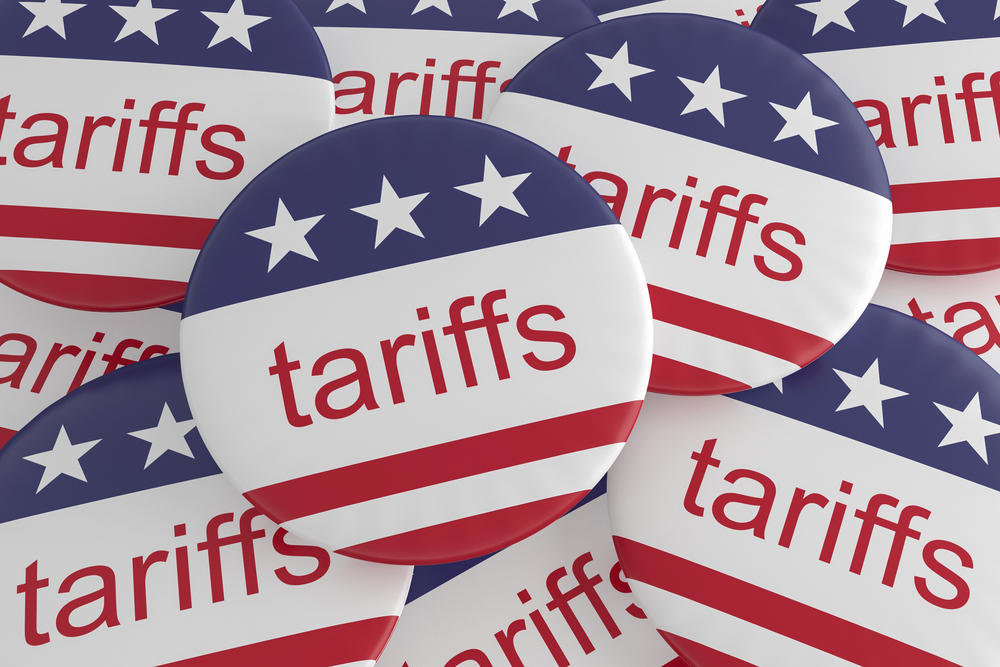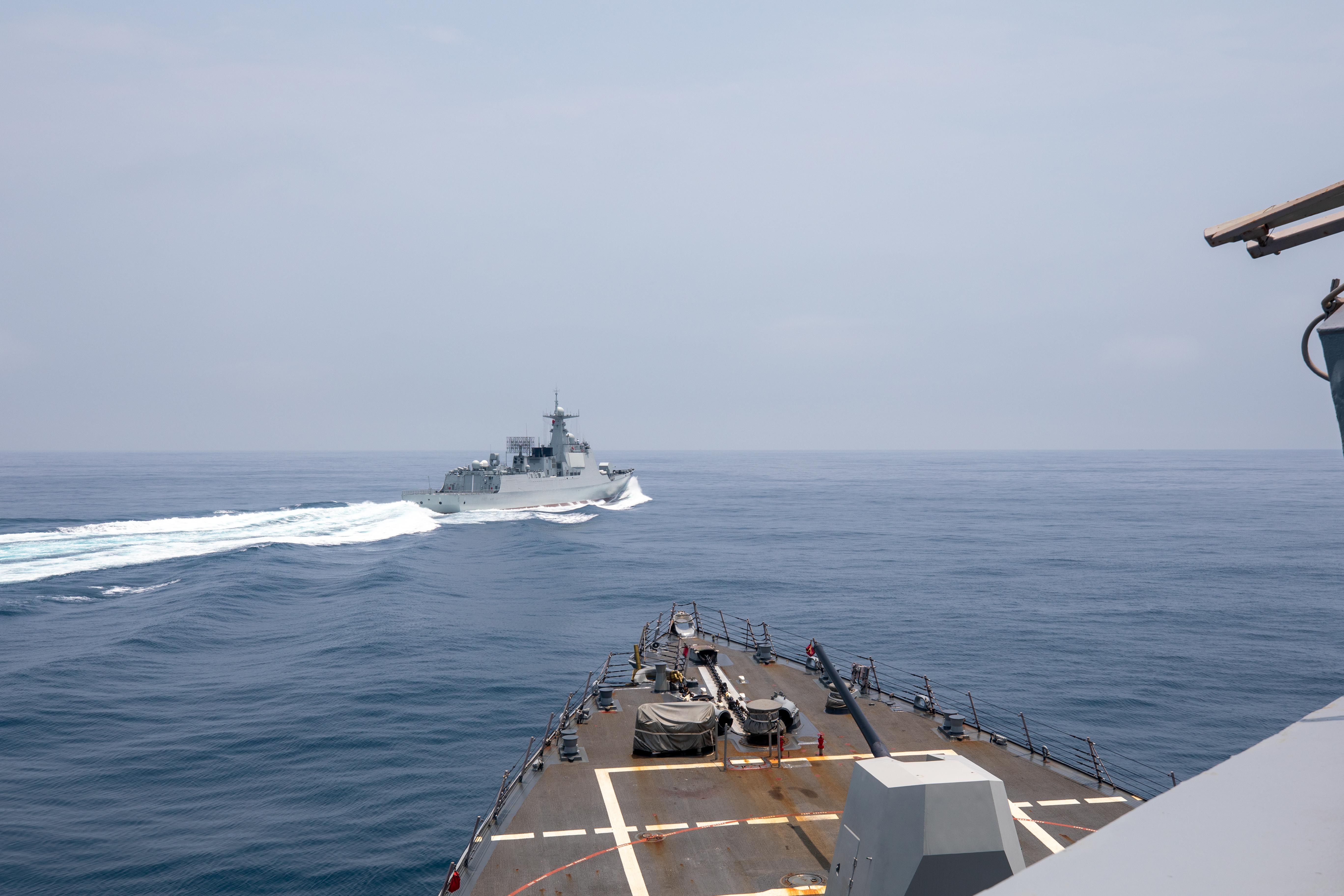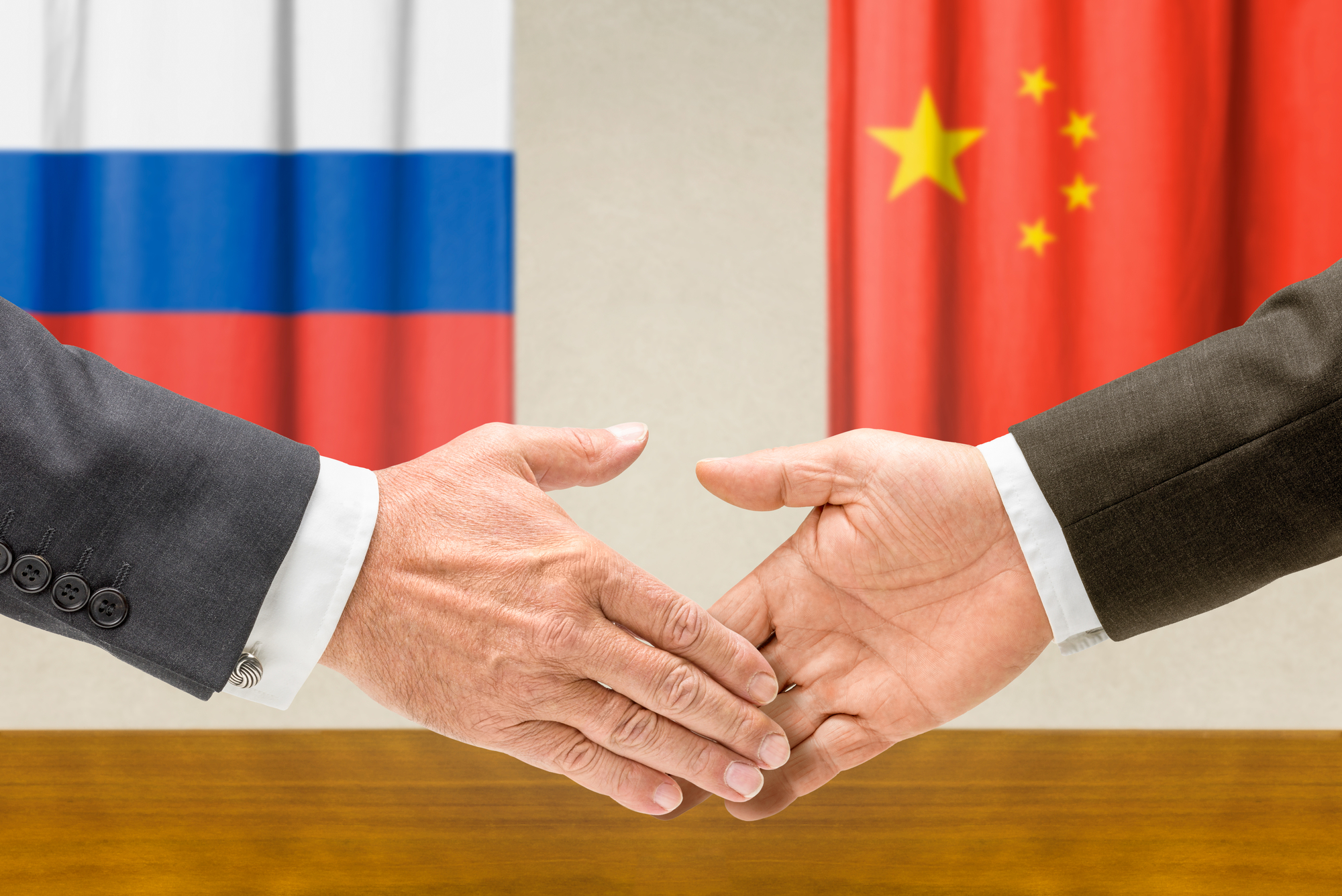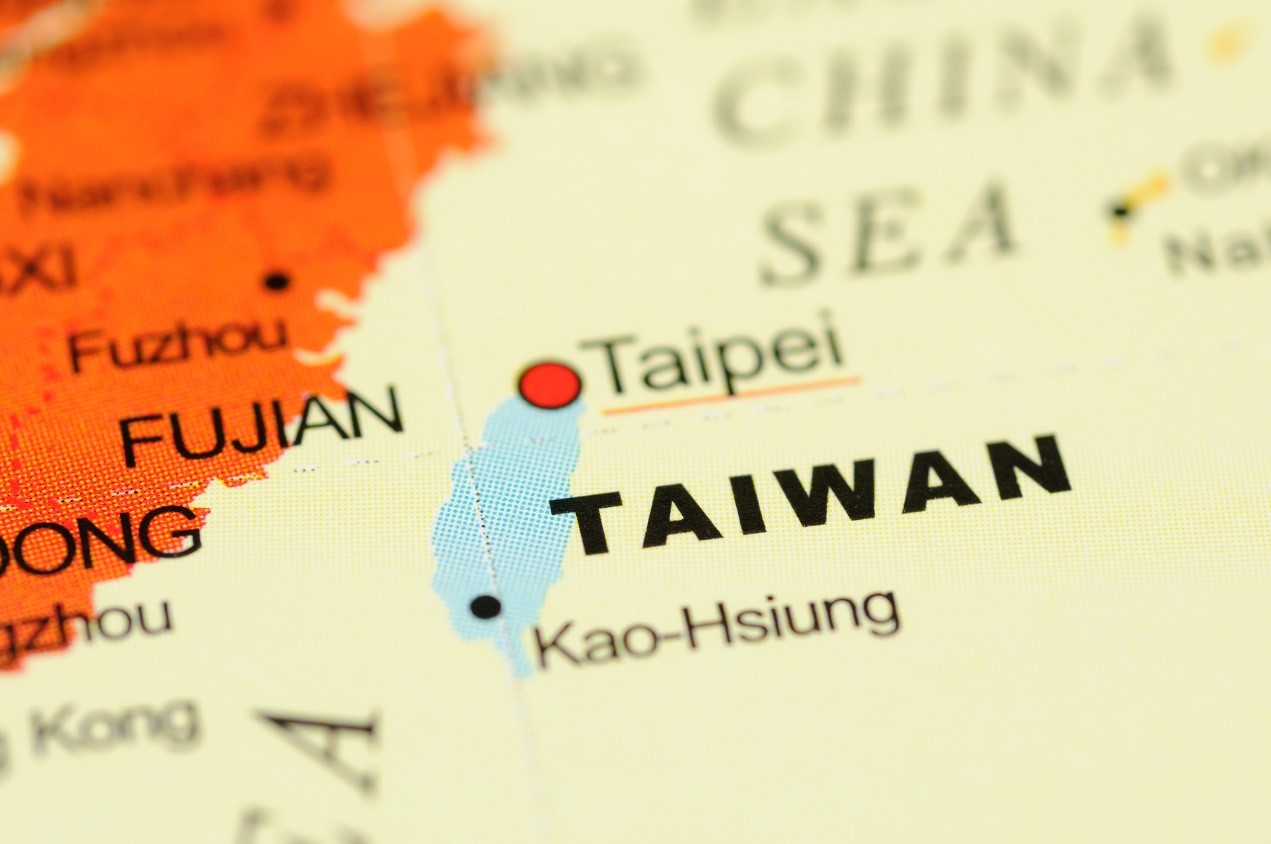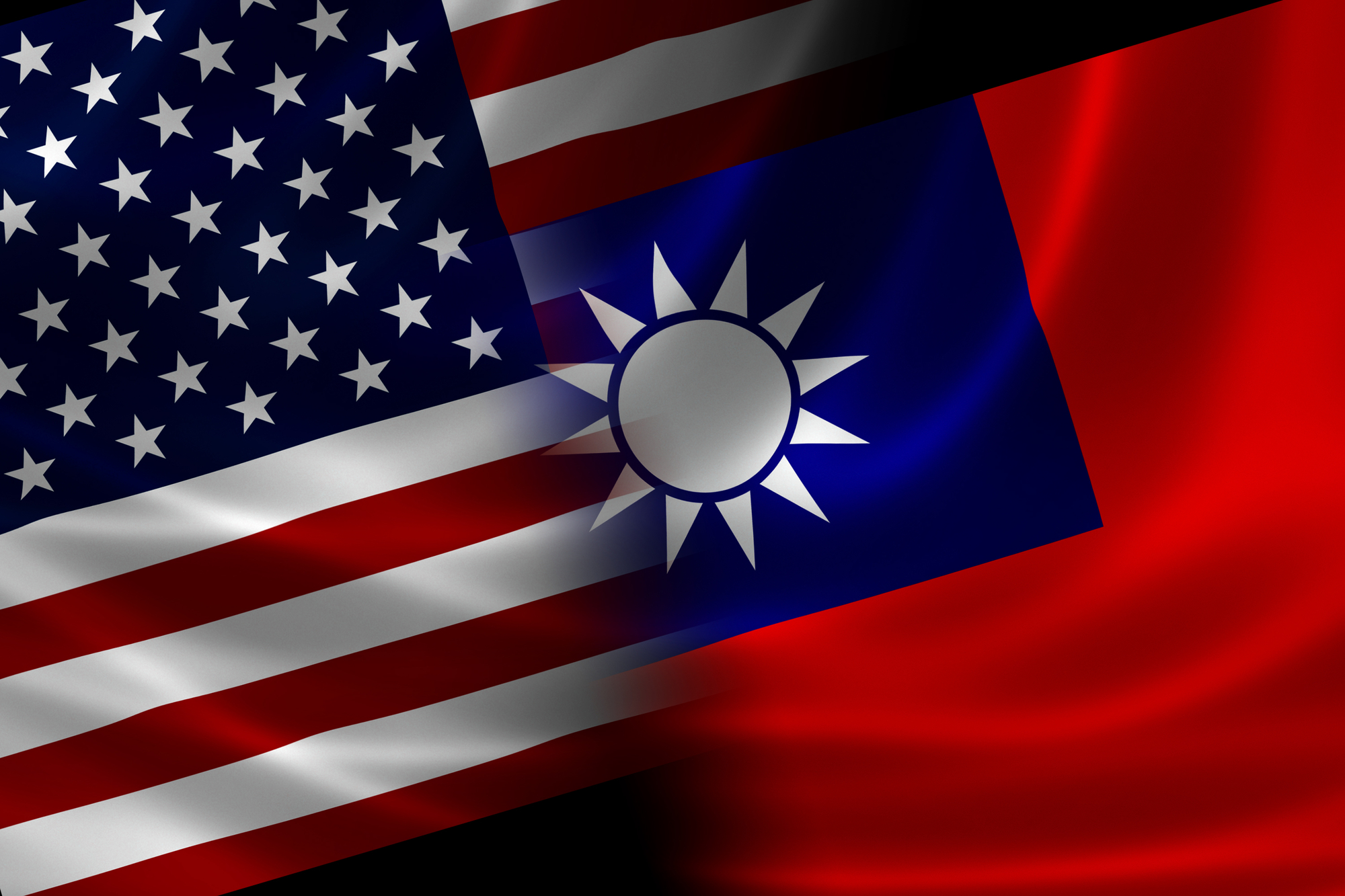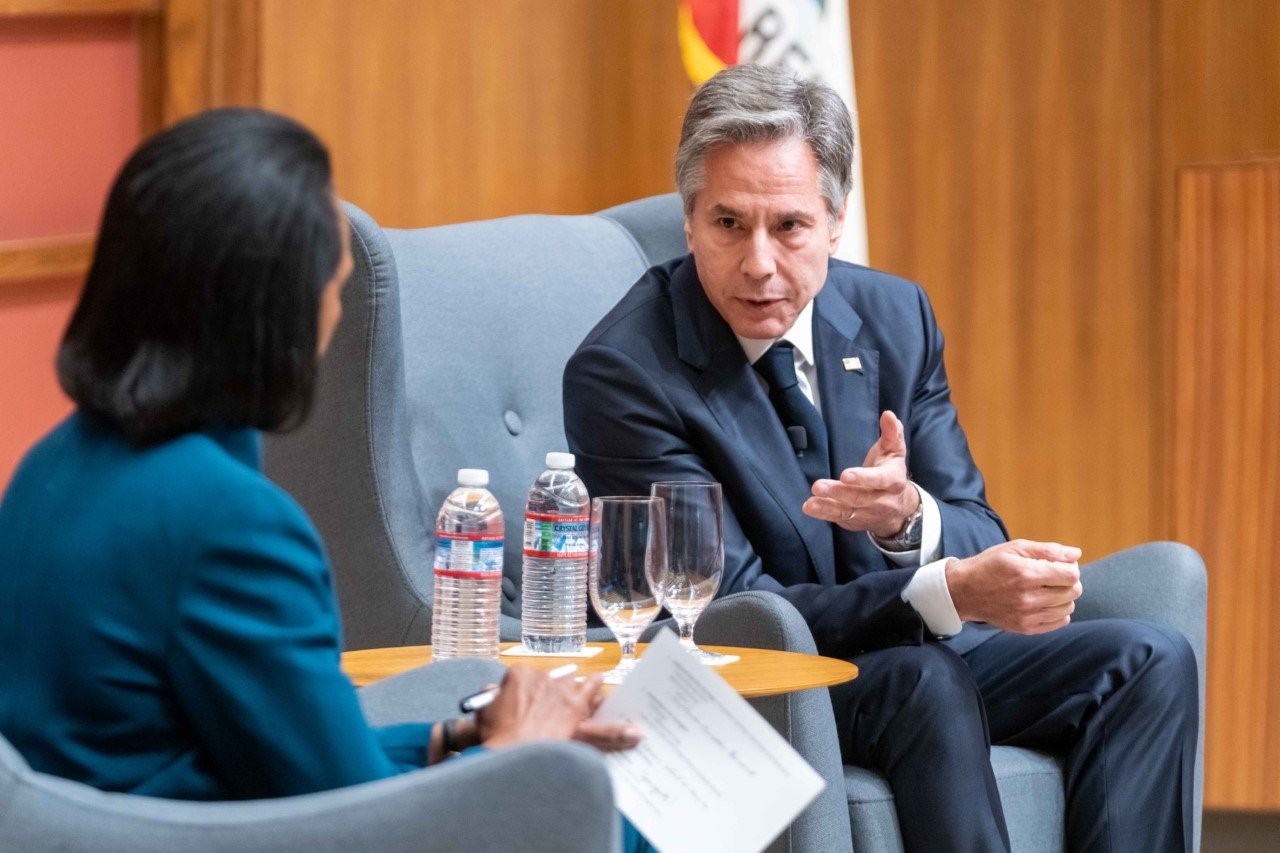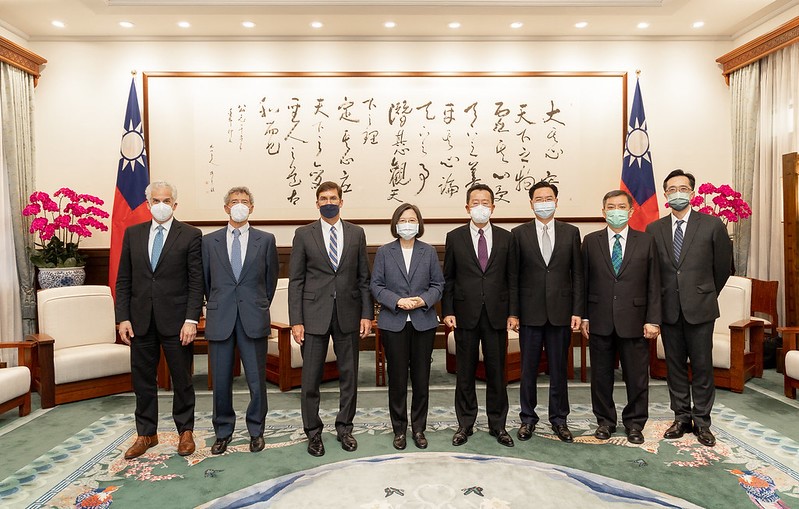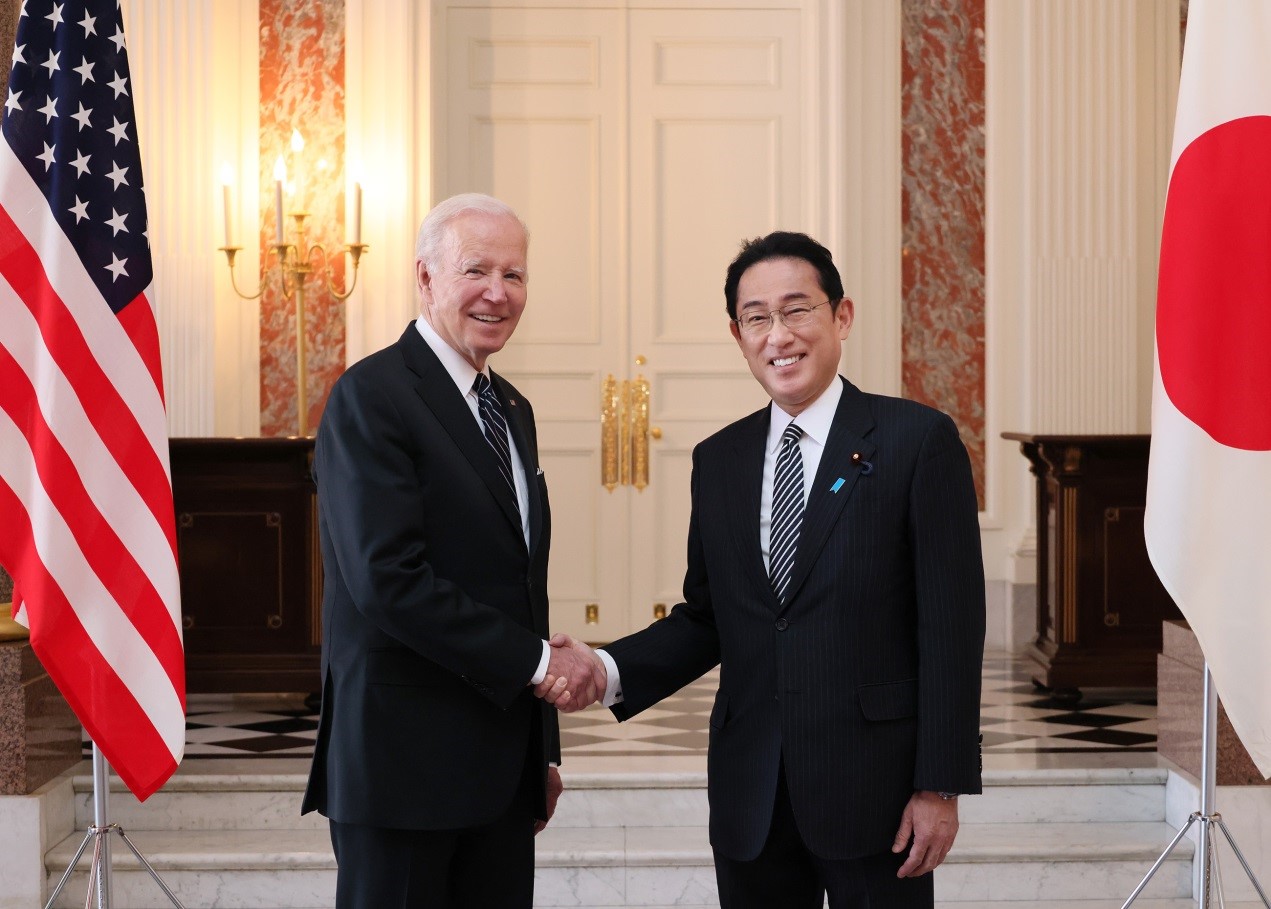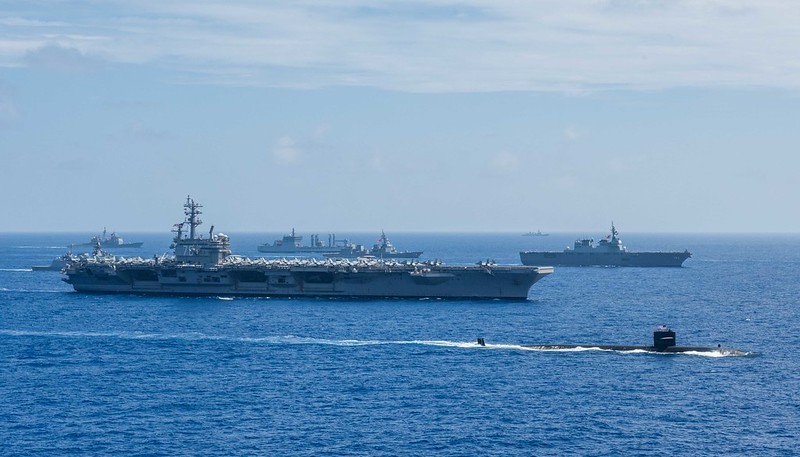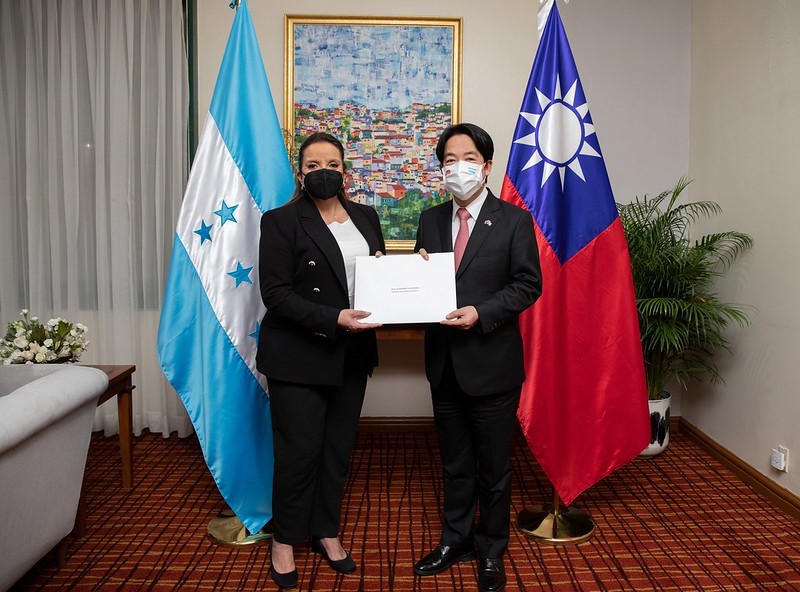As wariness about the strategic competition posed by the PRC continues to be one of the few issues that the two political parties agree upon, support for Taiwan is expected to remain strong regardless of the outcome of the U.S. presidential election in November. The question is how that rhetorical support will be translated into action by the incoming administration. Picture source: Sfnewsfeed.us, July 8, 2021, Facebook, https://www.facebook.com/SFNewsfeedus/photos/t.100044274887410/10158200480325817/?type=3>; Kamala Harris, August 27, 2024, X, https://x.com/KamalaHarris/status/1828137883984605421.
Prospects & Perspectives No. 49
Beyond a Rhetorical Defense of Taiwan
By Shihoko Goto
When then President-elect Donald Trump took a congratulatory phone call from President Tsai Ing-wen in December 2016, it not only enraged the People’s Republic of China (PRC), but it also rattled Taiwan-focused U.S. policymakers and analysts. The seemingly innocuous brief chat between Trump and Tsai was anything but, and there were grave concerns about the potential for a sudden shift in U.S. policy in managing relations with Taipei. Since then, though, public appetite and political support for Taiwan has surged, with both Democrats and Republicans eager to demonstrate that they too stand with Taiwan. As wariness about the strategic competition posed by the PRC continues to be one of the few issues that the two political parties agree upon, support for Taiwan is expected to remain strong regardless of the outcome of the U.S. presidential election in November. The question is how that rhetorical support will be translated into action by the incoming administration.
From Ukraine to Taiwan under Trump?
From taking the inaugural phone call from Tsai, to sending a cabinet member to visit Taipei, and boosting arms sales to Taiwan, Trump had a significant track record of supporting Taiwan by challenging the established rules of engagement during his years in office.
There are growing expectations that a second Trump presidency would look to reach a swift conclusion to the ongoing war between Russia and Ukraine. How such a resolution is reached will undoubtedly impact not only U.S. relations with Russia, but will also redefine the United States as an ally and partner on the global stage more broadly. An agreement that undercuts Ukraine in favor of advancing U.S.-Russo relations would bode ill for Taiwan.
Nevertheless, numerous analysts with close ties to Trump have argued that reaching closure over Ukraine would allow the United States to devote more resources to the Indo-Pacific theater and defend U.S. interests as a regional power. Under a Trump administration, China would be the single biggest rival for the United States that has the potential to undermine the country’s economic as well as security presence in the Indo-Pacific. By making clear that China remains a systemic threat in the longer term, the Republicans should be motivated even further to protect Taiwan. The impetus would be in part to come to the defense of a vibrant democracy and to push back against the PRC’s insistence that the Republic of China (Taiwan) remains a core interest for the country.
It is, however, Taiwan’s strategic geographical location as well as its critical role in the global semiconductor industry that would motivate a second Trump administration to be committed to come to the defense of Taiwan. Still, Trump has repeatedly argued that the United States has paid the price for Taiwan’s dominance in the semiconductor industry, and that the U.S. is getting shortchanged by defending Taiwan while also being dependent on Taiwanese chip imports. Thus, rather than providing a silicon shield, Taiwan’s dominance in the chip industry could actually be the source of tension between Taipei and Trump, as Taiwan’s successes in the chip sector may be seen as having only been possible as a result of the United States being taken advantage of.
Prospects for multilateralism under Harris
While Trump is expected to take a more transactional approach to foreign policy with Taiwan being no exception, a Kamala Harris presidency is anticipated to be more focused on building partnerships with like-minded countries with shared goals. During her first month of being the Democratic nominee for president, Harris’s campaign has obviously focused primarily on addressing domestic policy issues. Many close to the Biden administration have argued that U.S. foreign policy under a Harris presidency would build upon the Biden administration’s efforts to advance multilateral cooperation.
It was in April 2021 that Biden and then-Japanese Prime Minister Yoshihide Suga jointly stated “the importance of peace and stability across the Taiwan Strait,” which at that time made headlines for the two countries’ willingness to highlight the need for international cooperation to come to Taiwan’s assistance despite potential reaction from the PRC. Since then, public declarations of support for Taiwan have come to be expected at bilateral and multilateral forums including the G7.
Given that Harris’s nomination to be the Democratic presidential candidate was unexpected and still in its early days, just how her administration’s foreign policy may veer from the Biden administration remains unclear. However, a Harris presidency is expected to be less transactional, and give greater weight to Taiwan as a partner for advancing democracy and good governance across the Indo-Pacific and beyond. At the same time, a Harris administration is expected to remain more engaged in Ukraine and less likely to conclude the conflict with Russia. The upside for Taiwan would be that the United States would be more willing to support allies and partners comprehensively. The downside is that Washington may be even more stretched in dealing with current and potential conflicts worldwide.
Higher expectations for Taiwan’s own capabilities
A striking development in Washington though is increased bipartisan frustration about Taiwan’s own capabilities to push back against PRC coercion, expand its defense capabilities, and bolster its resilience to external shocks. Both Republican- and Democratic-leaning analysts are quick to argue that Taiwan can and should do more to boost its own resilience, especially as Washington continues to be mired in the ongoing war in Ukraine while instability in the Middle East escalates. Doubling its defense budget to over 4 percent has been an oft-quoted figure as a reasonable expectation and has been seen as one clear indicator of a government willing to shoulder a greater burden of its own defense needs.
On the economic front, there will be greater expectation from the Republicans for Taiwan to enhance its own energy security needs by embracing nuclear energy. While the Democrats may be less inclined to promote nuclear power, they too will undoubtedly be pressing for Taipei to invest more to boost its own energy security.
Neither spending more of its GDP on defense nor adopting nuclear energy will be popular politically within Taiwan. But such political sacrifices may have to be made by Taiwan as the United States reassesses its own foreign policy interests and priorities, and looks to Taiwan as a partner in meeting the shared strategic challenge posed by the PRC.
(Shihoko Goto is the director of the Indo-Pacific Program at the Wilson Center.)



